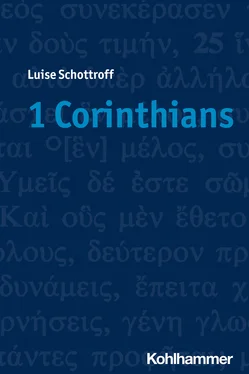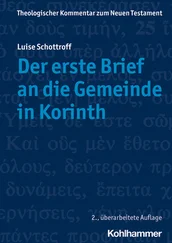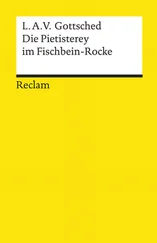1 ...7 8 9 11 12 13 ...25 1:13Here Paul takes the absurdity of the consequences that such competitiveness and in-group delineations would have to its (il)logical conclusion!
These sentences suggest that those who have performed baptisms are accorded special authority by some of their followers, allowing them to make competing in-group delineations. We learn from a treatise by Tertullian (died after 200 CE) that he knows of conflicts about baptism that are comparable in structure to the conflict in Corinth. Tertullian would essentially like to restrict the right to baptize to the bishop and to ecclesiastical office holders authorized by him to perform it. On the other hand, he finds himself having to accept the right of all believers to baptize. Therefore, he establishes restrictions on this universal right to baptize. He speaks with vigor against women taking upon themselves the right to baptize or having it conferred upon them. In this context it becomes clear that there were, therefore, conflicts in which the egalitarian position was maintained by appealing to Paul. 55The controversy over the right of women to baptize shows, on the one hand, that a special quality is attributed to those who baptize, but that this, on the other hand, is in conflict with the egalitarian character of the congregation. In 1 Corinthians Paul mentions no women as baptizers, only men, to whom, on account of the baptism, a special quality is ascribed, a quality that extends to those baptized by them. So Paul has nothing to say about women as baptizers. And yet, from the discussion into which Tertullian gives us a look and from Acts 18:1–3, we have grounds for supposing that Prisca also baptized people in Corinth.
Paul tries in 1:14–17a to minimize as much as he can his role as a baptizer in order to prevent anyone from appealing to being baptized by Paul as a basis for special privileges.
1:14Chrispus could be identical with the head of the synagogue in Acts 18:8, who became a believer in the messianic proclamation and appears to have had influence in Corinth. Paul does not mention—in contrast to Acts—that his »house« (his family and slaves) became members of the messianic community along with him.
Gaius is probably identical with the Gaius in Rom 16:23. There he is named as the host to Paul and to the entire congregation/community. Attempts to learn something about the economic and social status of the two men from the minimal information we possess have remained quite hypothetical. Gaius is possibly one of the well-to-do members of the congregation, 56if Rom 16:23 means that he could offer a meeting place to several house congregations at the same time.
1:16Stephanus and his household are mentioned in more detail in 16:15–18. From this information we cannot conclude that he was well-to-do but that he lived somewhat above the subsistence level economically. 57
1:17For Paul competition within the congregation stands in contradiction to the fact that Jesus the Messiah died on the cross. The congregation in Corinth, each and every one of its members, entrusted themselves to this Messiah and to the God of Israel. In a Roman city, to trust in a Messiah as liberator/ kyrios who was crucified for the sake of Roman political interests, creates structures for living together and for ordering your life different from those in the society in which you grew up. In it such competition is the order of the day (3:3, etc.). In the body of Christ things are different. The theme »cross« does not make a sudden appearance, as has often been thought, nor is 17b a transition to a new theme, 58but an intensification of what has been the theme since 1:10. The inner connection of the themes competition and crucifixionis also evident in chapters 3 and 4 (see, for example, 3:3 and 3:18–23). Caesuras between 1:17 and 1:18 make this connection invisible.
»Not with eloquent human wisdom«/ sophia logou —that’s how Paul delineates the gospel in 1:17. What kind of wisdom is Paul here (cf. 2:1) essentially excluding?
In his discussion of the wisdom of the world Paul uses the rhetoric of negations and antitheses. 59The side characterized as negative is frequently read as a Pauline presentation of the teaching or position of the opponents. The feminist discussion also usually employs this interpretive pattern; it holds Paul’s opponents to be Corinthian women prophets with a wisdom message that grants them power and enhanced status in the congregation. 60Such concepts of the opponents are often connected with the assumption that they advocate a radical form of present eschatology (especially 4:8 is then interpreted in this way) and are, thus, »enthusiasts.« 61But if one looks at the Pauline statements about who advocates this wisdom, it becomes apparent that he has no specific individuals in mind. Thus he can speak of »eloquent wisdom« (1:17), as well as »human wisdom« (2:5; cf. 1:25, 2:9; 2:4, in a divergently worded reading) or of the »wisdom of this world« (1:20, 3:19; see 1:21 and 3:20, which use similar terminology) or of the »wisdom of this age« (2:6; 3:18). Paul designates here structures »of the world« ( kosmos ). It is not to be assumed that someone is asserting, »I have the wisdom of the world at my beck and call,« but instead that it is appealing to most people to be considered wise. Paul observes a society in which sophia /wisdom is ascribed to those who express something in it, who are acknowledged.
The social structures of the world that are, according to Paul, characterized by wisdom can be sketched in broad contours. Paul sees this wisdom as follows:
• Wisdom involves education and eloquence (see 1:17, 19, 20; 2:4, 13; 3:20). 62
• Striving for wisdom begets competition and »boasting«/ kauchasthai , and the desire to be on top (1:12; 3:18–22; 4:7–8).
• Wisdom impedes solidarity with the crucified Jesus/Messiah and other crucified ones (1:18).
• Wisdom led to the crucifixion of Jesus by the »Archons« (2:6–8).
• Wisdom is described in social and mythical concepts at one and the same time. To the old question whether »Archons« in 2:6–8 refers to demons or to earthly rulers, 63my answer is »both of the above.« On this issue Paul is speaking the language of apocalyptic and Gnostic mythology, 64and yet the demonic powers also find embodiment in those in authority, for example, political power brokers. Those in authority are the visible tip of the invisible iceberg of the powers. On earth, under the earth and in heaven, those in authority are working to bring people into subjection and to make them instruments of death. This concept of the powers is important for Paul; see 15:24; 3:22; Rom 8:38, 39; Phil 2:10.
The biographies of the congregation and of Paulhimself are a testimony to the fact that the wisdom of the world and its powers oppose God’s power: 1:26–31; 2:1–5; 4:8–13; likewise, the resurrection of one crucified by Rome is God’s powerful contravening of the deadly structures of this world (1:18–31). Paul’s »counter-rhetoric,« 65which opposes the lines of ancient elite-rhetoric, 66is also part of this testimony. While elite-rhetoric desires to be a means of ruling over people and represents the ideology of imperial power, Paul’s language is directed toward justice for the poor and the sacrifice of the use of force.
The biblical traditionaddresses this present-day experience of the wisdom of the world and its overthrow: In 1:18 Paul refers in this regard to Isa 29:14; in 1:31to Jer 9: 22–23 [=9:23–24 in the Eng. Bible. Trans.]; in 2:9 to an unknown Scripture; in 3:19, 20 to Job 5:12, 13 and Ps 93:11[LXX; = Ps 94:11. Trans.]. Here in 3:20 Paul replaces the word used in Scripture, »humankind,« with »the wise,« in order to leave no doubt about his current reference (on Paul’s use of Scripture, see on Chapter 10). The central catchwords of the Pauline declarations—human »wisdom,« which God reduces to nothing (Isa 29:14), what the »human« heart/understanding cannot comprehend (2:9, an unknown citation) and »boasting«/ kauchasthai (Jer 9:22, 23 [Eng. Bible, 9:23–24. Trans.])—correspond with the Scripture.
Читать дальше












